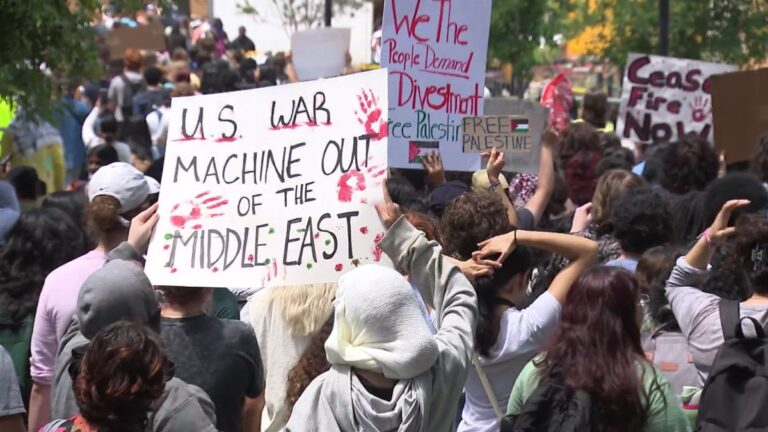A special Texas Senate subcommittee on Tuesday morning heard details of police responses to pro-Palestinian demonstrators on multiple state campuses.
The purpose of the interim committee is to gather information and public testimony in order to change laws and policies before Congress in January.
Tensions were high on college campuses in late spring. Police and DPS officers made arrests at the University of Texas at Austin and Dallas in late April, but not at similar protests at the University of North Texas and the University of San Antonio.
On April 30th, a large number of students walked out of class at the University of North Texas. Inspired by similar protests across the country, they called on universities to divest from Israeli companies and weapons manufacturers. After several hours of shouting, talking, and marching, they dispersed without violence or arrests. The situation at UT Austin and UT Dallas was very different.
“We are preparing for any eventuality, but we are making decisions based on information,” Lt. Col. Freeman Martin of the Department of Public Safety told a subcommittee of the Higher Education Committee.
Lt. Col. Martin spoke during Tuesday morning's hearing about where the line lies between anti-Semitism and free speech on campus. In short, protest organizers in Austin and Dallas have camped, blocked buildings and sidewalks, and He told the committee that he is planning to install a fence.
The intelligence that we had and let them occupy, occupy and disrupt,” Martin said.
Stephen Collis, a professor at the University of Texas at Austin who was called as a First Amendment expert witness, said the school is allowed to make the rules. The government is not allowed to suppress free speech except in very special cases.
It doesn't matter whether the speech is offensive, offensive or insulting, Collis said. Permitted, as long as the purpose is not to cause imminent physical harm or violate the law.
“Vandalism, such as spray-painting buildings, blocking roads, blocking access to buildings, barricading buildings, etc., none of which qualify as speech,” Collis said.
The most visible clashes between protesters and police were in Austin, where 55 people were arrested on April 24th and 79 people were arrested on April 29th. The charges were dismissed on the first day by the county attorney. The second day is still pending.
More than 90 people from the public gathered to testify about the implementation of a new law that precludes protests, free speech, and diversity, equity, and inclusion efforts on campus.
“What happened on campus is a clear violation of my rights as a student attending a public university,” said Julia Heillein, from Austin. Her sister was arrested at a campus protest.
Protesters and Jewish students made their voices heard Tuesday.
“Recently, we have seen how our nation's most prestigious universities have become hotbeds of hatred, misinformation, and isolation,” said Levi Fox of Longhorn Students for Israel.
University presidents told the committee that preparations for the graduation ceremony were excessive and there were few demonstrations. As the war between Israel and Hamas escalates, state leaders said they will plan over the summer to resume classes in the fall.

